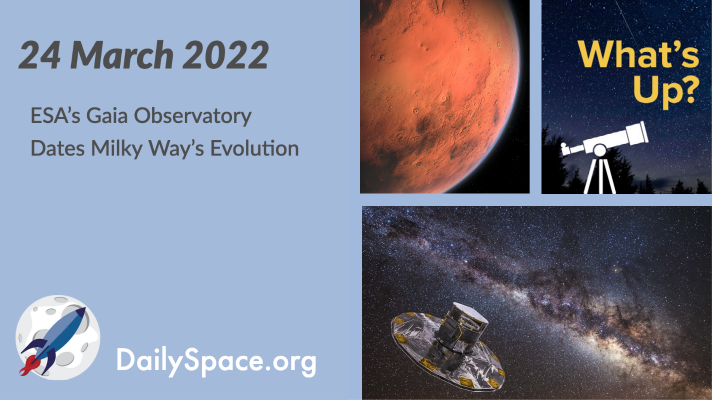
Mar 25, 2022 | Citizen Science, Climate Change, Daily Space, Earth, ESA, Exoplanets, Galaxies, Mars, Milky Way, Perseverance, Sky Watching, Spacecraft
Stellar formation and evolution data collected from ESA’s Gaia telescope has allowed scientists to create a timeline of the evolution of our own galaxy, the Milky Way. Plus, an ancient ice age, sound on Mars, a new exoplanet, and What’s Up.

Jan 6, 2022 | Blue Origin, Crewed Space, Curiosity, Daily Space, JWST, Perseverance, Rockets, ROSCOSMOS, Soyuz, Space China, SpaceX, Starlink
The Rocket Roundup team takes a look back at the rockets that launched in 2021, with a review of the statistics and some highlights (including that one telescope that could have ruined Christmas).
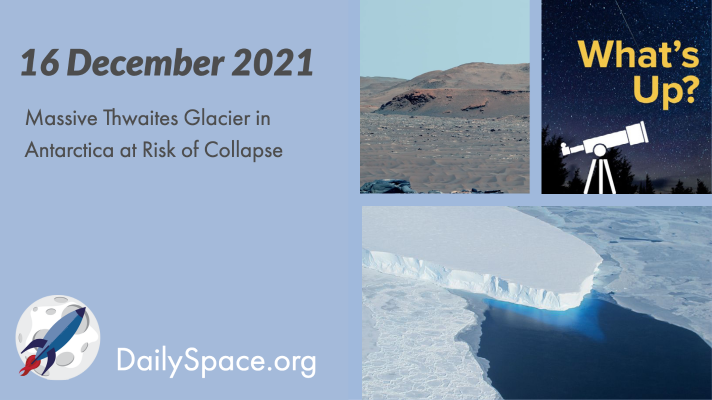
Dec 17, 2021 | AGU, Climate Change, Curiosity, Daily Space, Earth, Mars, Our Solar System, Perseverance, Rovers, Sky Watching, Star Forming Region, The Sun, Venus
A team of scientists collected cores and modeled ice cliff failure and found that Thwaites Glacier in Antarctica is melting more quickly than ever and could be at risk of collapse, threatening global coastlines with almost a meter of sea-level rise. Plus, new results from Percy, and this week’s What’s Up.
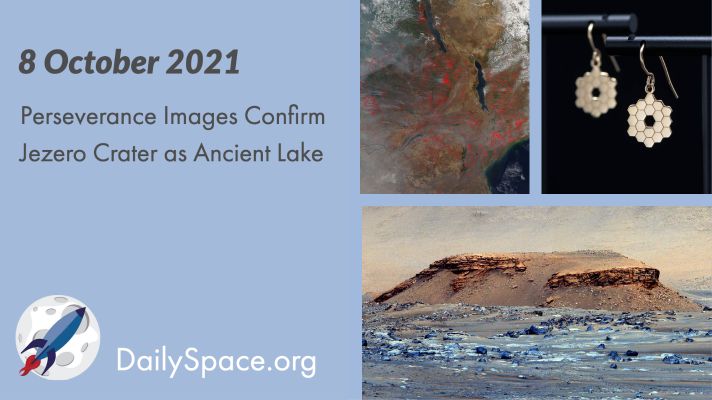
Oct 12, 2021 | Asteroids, Climate Change, Daily Space, Earth, Galaxies, JWST, Lucy, Mars, Perseverance, Review
A newly completed analysis of Perseverance’s first images from Mars finds that the landing site, Jezero Crater, was really a lake that was fed by a river, with sedimentary layers, flash floods, and strewn boulders. Plus, Central African biomass burning, Arctic permafrost melting, and we look at jewelry that celebrates upcoming missions.
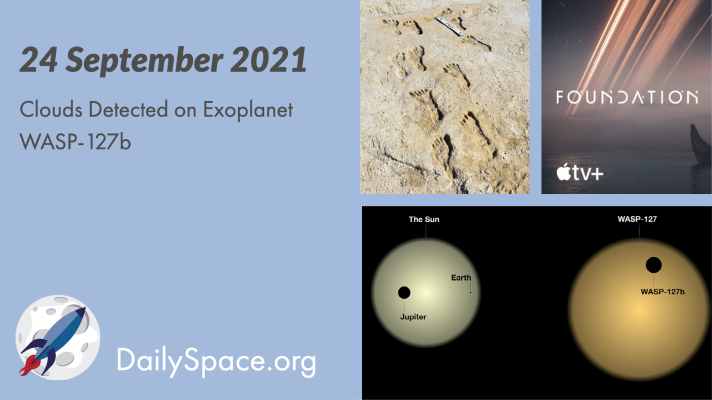
Sep 27, 2021 | Daily Space, Earth, Exoplanets, Galaxies, Mars, Perseverance, Review
Using data from the Hubble Telescope and the ESO’s Very Large Telescope in Chile, a team of scientists have successfully detected clouds on an exoplanet and even measured their altitude. Plus, fossil evidence of humans’ arrival in North America and a review of the first episode of “Foundation” on Apple TV+.
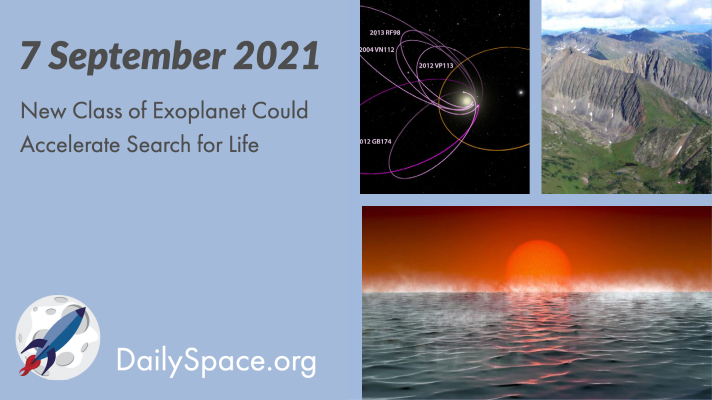
Sep 8, 2021 | Asteroids, Astrobiology, Climate Change, Daily Space, Earth, Exoplanets, Galaxies, Mars, Neutron Stars / Pulsars, Our Solar System, Perseverance, Supermassive Black Holes, Supernovae, Very Large Array
Hycean worlds have hydrogen-rich atmospheres and are covered in oceans, making them prime candidates for the search for life outside our own solar system. These worlds are also more numerous and easier to find than Earth-like exoplanets. Plus, an update on the search for Planet 9 and how volcanoes may provide a climate safety valve.








 We record most shows live, on Twitch. Follow us today to get alerts when we go live.
We record most shows live, on Twitch. Follow us today to get alerts when we go live.